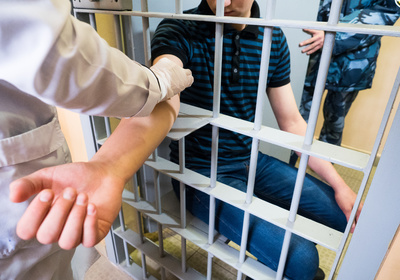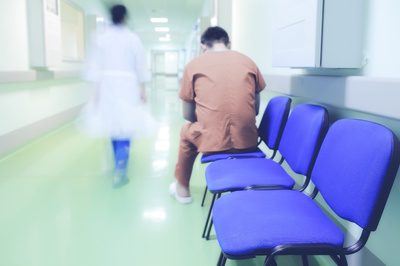
- Medications to treat OUD are clinically more effective than psychotherapy alone.
- People in the criminal justice system have more problems accessing these medications than others.
- Medicaid expansion improves access for the criminal justice population.
- Providing effective treatment reduces government costs in other areas.
Clinical studies have shown that taking medications like methadone or buprenorphine as part of treatment for opioid use disorder (OUD) leads to significantly improved outcomes, including reduced opioid use, lower overdose rates, and less need for acute care.
For those in the criminal justice system, access to these medications can often be difficult, even though the incarcerated and formerly incarcerated populations have some of the highest rates of OUD. The recent Medicaid expansion has led to some improvement in access for those in the criminal justice system, but these rates are still below those outside the system.
Additionally, not all states expanded Medicaid. Access to medications is predictably better in states where Medicaid was expanded.
 An Ongoing Problem
An Ongoing Problem
It is not surprising, though it is tragic, that those who need these medications most have the most trouble getting them. The relative newness of this type of treatment means that the cost of the medications is prohibitive for many people who do not have medical insurance or Medicaid. The bottom line is, the way the system is set up right now, the people who most need these medications are too often unable to get them.
Studies have shown that it saves governments money to pay for effective drug treatments. According to the National Institute on Drug Abuse (NIDA), one year of methadone maintenance costs $4,700, while a year of incarceration costs $24,000.
Additionally, NIDA estimates that even according to conservative estimates, every dollar that is spent on substance abuse treatment saves $4 to $7 in reduced drug-related crime, criminal justice costs, and theft. When the costs of healthcare are added in, the savings is more like 12 times the cost to society and the government.
A Better Way
Penn Medicine’s Utsha Khatri, who authored the study on the Medicaid expansion’s effect on access to medications by those in the criminal justice system, said this: “The response to substance use disorders in the United States has historically been criminalization. As a result, many individuals with OUD are involved with the criminal justice system, and this may influence their treatment prospects.
“Any policy or intervention that seeks to mitigate the harms of risky substance use must also consider the impact among populations with criminal justice involvement specifically.”
It’s great news that states are allocating increasing funds to fighting the crisis of OUD. However, some states have not yet made the commitment to expand Medicaid. As more states gain understanding of the cost benefits of treating this population, perhaps more will follow.
Harris House provides effective treatment to those with OUD and other substance use disorders. Call us to learn about admissions for you or a loved one who needs help to find recovery.


 An Ongoing Problem
An Ongoing Problem





